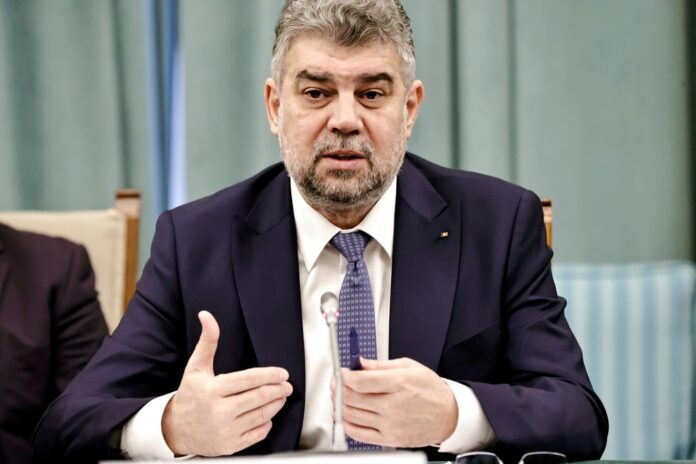National leader of the Social Democratic Party (PSD), Prime Minister Marcel Ciolacu, says that the first proposal with which the Social Democrats went on Wednesday morning to presidential consultations was not to send Romanian troops to Ukraine.
Also, PSD is in favour of an additional defence spending in the form of investment in the national arms industry, as well as for the exclusion of defence spending from the calculation of the government deficit.
„NO to sending Romanian troops to Ukraine; YES to additional defence spending, but only in the form of investment in the national arms industry and for the increase of military mobility (modernisation of railways, road and port infrastructure that can serve dual use); excluding defence spending from the calculation of the government deficit. These are the proposals with which I went, together with my PSD colleagues, to today’s presidential consultations,” Ciolacu said in a social media post.
According to a PSD press statement, Social Democrats voiced support for three proposals aimed at defining Romania’s position at the extraordinary meeting of the European Council on March 6 on the European Union’s defence policy and the situation in Ukraine.
„The Social Democratic Party voiced support for three proposals. (…) Romania will not send troops and will not participate in any action involving the sending of forces to Ukraine. Romania’s main mission within NATO is to ensure the protection of the eastern flank by defending the national territory, just like the other states in this region. Romania can participate in a common European programme to increase defence spending, only on condition that the additional funds allocated by our country are invested in the national defence industry and for the increase of military mobility (modernisation of railways, road and port infrastructure that can have dual use). Thus, we aim to increase the Romanian economy, the jobs and the incomes of the Romanian employees who will work in that sector.”
According to PSD, Romania must insist that any additional spending provided for in a common European Union defence program be excluded from the EU’s constraints on financial discipline that can lead to sanctions on member states.
AGERPRES




